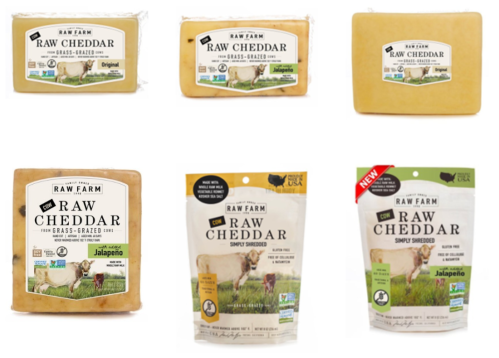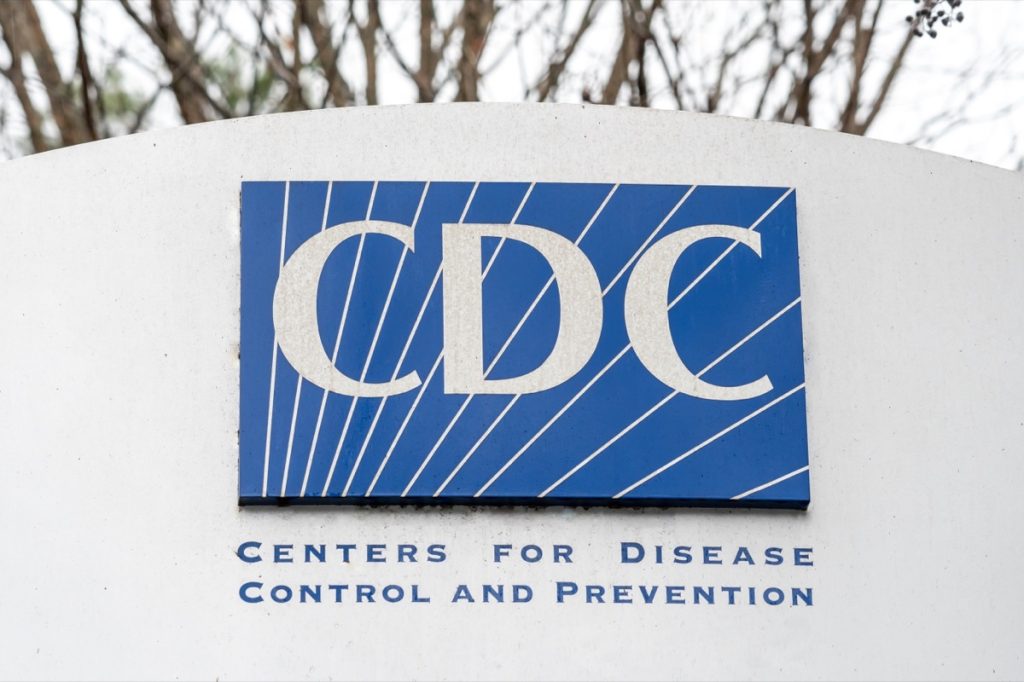E. Coli Outbreak Spreading in 4 States—These Are the Symptoms

Even if you’re keeping an eye out for healthier foods to put in your cart, most people shop at the grocery store with the confidence that the items on the shelves and in the coolers are safe to eat. But despite the strict rules and regulations in place for manufacturers, potentially dangerous products can sometimes make their way to the aisles and end up in fridges and pantries. Now, the Centers for Disease Control and Prevention (CDC) warns an E. coli outbreak is spreading in four states. Read on to see what appears to be causing the spike in illnesses and what symptoms you should be aware of.
RELATED: Listeria Outbreak Has Hit 11 States—These Are the Warning Signs of Listeriosis.
At least 10 people in four states have fallen ill with E. coli infections.

On Feb. 16, the CDC and the U.S. Food & Drug Administration (FDA) announced that they were investigating a sudden spike in E. coli infections. So far, the agencies say at least 10 people have been sickened by the harmful bacteria from Oct. 18, 2023, through Jan. 29, 2024. The group includes four patients who were hospitalized and one who developed a serious condition known as hemolytic uremic syndrome (HUS), which can lead to kidney failure.
Reported cases have spanned across four states to date. They include one in Texas, two in Utah, three in Colorado, and four in California. But because not everyone who becomes ill seeks medical treatment, the CDC warns that the outbreak “may not be limited to the states with known illnesses, and the true number of sick people is likely much higher than the number reported.”
RELATED: Rare New Case of Human Plague Has Health Officials Issuing a New Alert.
The investigation linked the outbreak to contaminated cheese products.

According to the latest update, the agencies say they’ve found cheese products from California-based Raw Farm were likely the cause of the illnesses. The FDA announced that the company had issued a voluntary recall for its Raw Cheddar products that were sold nationwide.
The list of affected products includes 1-pound blocks, half-pound blocks, and half-pound shredded cheese packages. It also includes all sizes and formats of its Raw Cheddar Jalapeño Flavor products. The company specifies the recall only affects block products from batch 20231113-1 and older and shredded products from 20240116 or older.
The agencies warn consumers not to serve or eat any of the affected products. They should also check their fridges for any of the items, including any cheese that may have been rewrapped and sold by grocery stores outside of its original packaging. The recalled products and any unidentifiable products should be thrown away, and people should thoroughly clean any surfaces the products may have come into contact with.
RELATED: Doctor Reveals the COVID Symptoms That Show Up Before You Test Positive.
E. coli infection can cause stomach-related symptoms before potentially becoming more serious.

According to the FDA, people infected with E. coli usually begin showing their first symptoms anywhere from a few days up to nine days after they ingest the bacteria. They most commonly include a combination of severe stomach cramps, diarrhea, fever, nausea, and vomiting.
Most people recover from the infection within five to seven days without requiring medical attention. However, the agency warns that symptoms can sometimes progress to become more serious, including severe bloody diarrhea or HUS and even the development of high blood pressure, chronic kidney disease, and neurologic problems.
The FDA says that while the bacteria can sicken anyone, children under the age of five, seniors over 65, and the immunocompromised are at a higher risk of severe infection. Anyone who believes they’re showing symptoms of an E. coli infection is urged to seek medical attention immediately.
RELATED: Lyme Disease Cases Have Spiked by 70 Percent—These Are the Warning Signs.
The latest outbreak comes just weeks after another serious bacterial contamination.

Unfortunately, this isn’t the only recent instance in which harmful bacteria have sparked a major recall. Earlier this month, the CDC announced it was investigating a Listeria outbreak that had spread across 11 states. The agency said 26 people had been sickened as of Feb. 13, including 23 hospitalizations and two deaths.
The agency said it had linked the illnesses to cotija cheese, queso fresco, crema, and yogurt made by Rizo-López Foods. The company initiated a total recall of its products, which were sold nationwide under 13 brand names. The products were also included in unbranded meal items sold at major grocers, including Costco, Safeway, and Albertsons, among others.
- Source: CDC: E. coli Investigation Details
- Source: FDA: Raw Cheddar Cheese - Voluntary Product Recall
- Source: FDA: Outbreak Investigation of E. coli O157:H7: Raw Cheddar Cheese (February 2024)
- Source: FDA: Escherichia coli (E. coli)
- Source: CDC: Listeria Outbreak Linked to Queso Fresco and Cotija Cheese
- Source: FDA: Rizo-López Foods, Inc. Voluntarily Recalls Dairy Products Because of Possible Health Risk